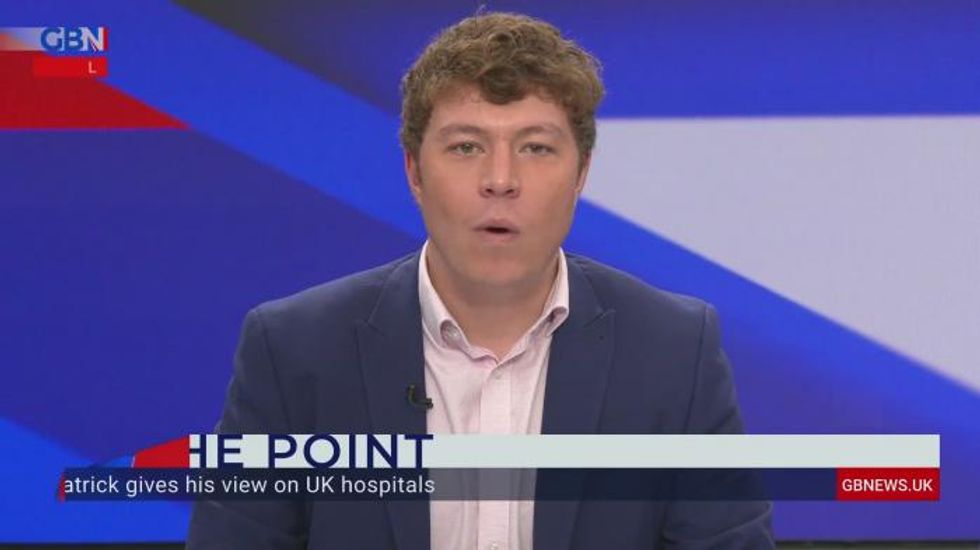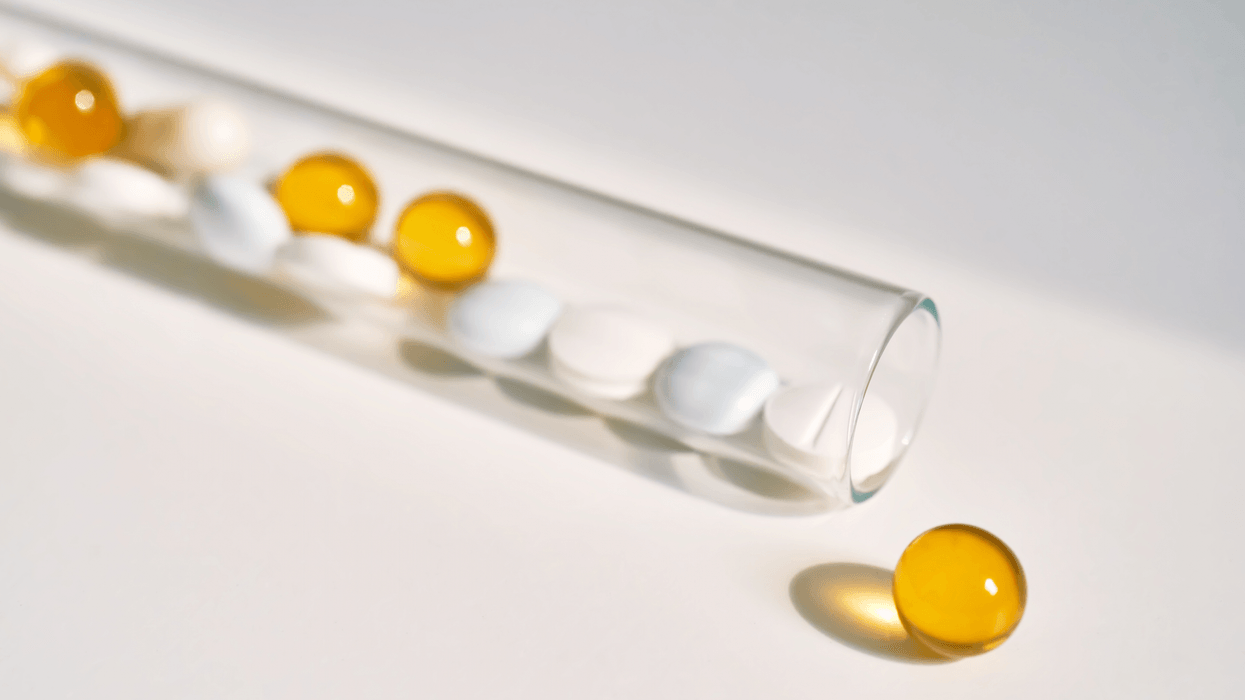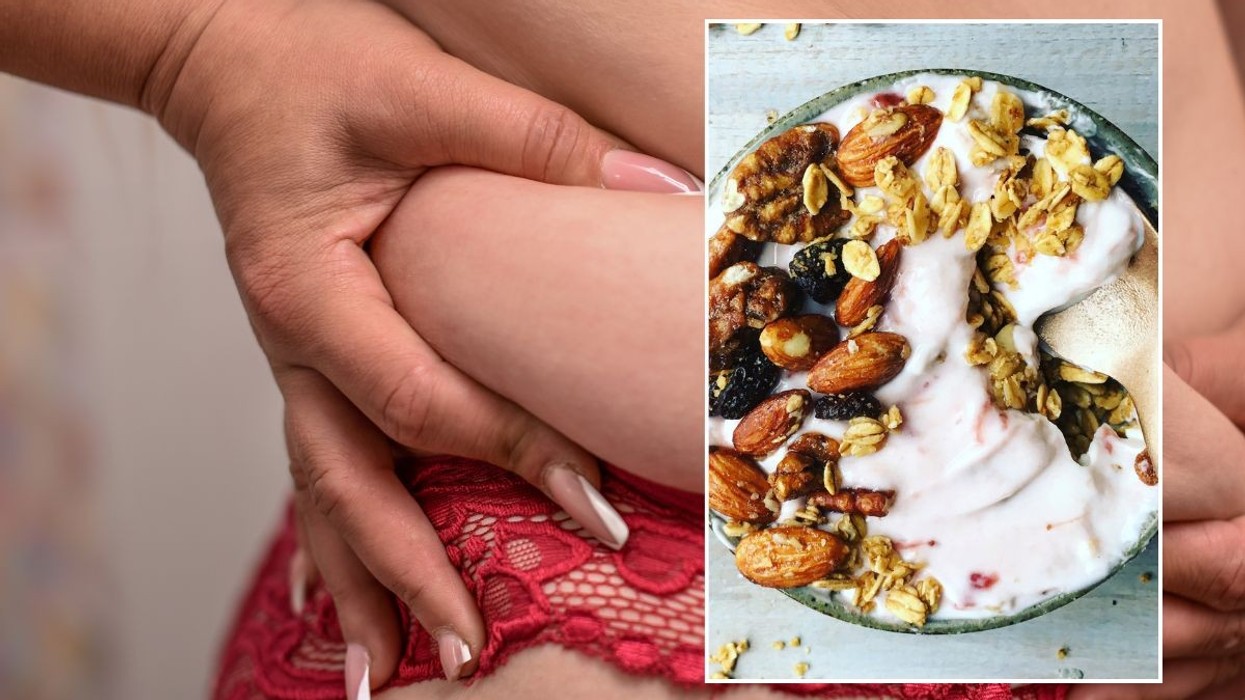Don't Miss
Most Read
Trending on GB News
Well I’m alive. Thank you very much for all the well-wishers, I’ve been off for a week with a blood infection which wasn’t particularly nice to say the least. And I only saw one person on Twitter wishing death upon me so that’s not a bad return all in all.
I had an interesting experience at the hands of our beloved NHS.
So, I’d had a small cut on my foot, I didn’t think anything of it, and then I woke up one night with a ridiculous fever, temperature, all that jazz.
I assumed I had Covid but then the tests came back negative so I took myself off to A&E.
Now I actually didn’t spend a single second in A&E, they whizzed me through to urgent care which seems like a ruthlessly efficient health service. Apart from the fact that what happened next was eye opening to say the least.
I was left in a room on my own, no medication, no medical attention whatsoever. Over the course of the next few hours I then started to go into septic shock. Which, I think we can all agree, is not ideal.
I then dragged myself out of my bed and went up and down the corridor asking for help. They came in and realised the situation was a little bit grim and started sticking needles into me.
But then I said, please can I have some water? And they said, we’re sorry, there is no drinking water.
No drinking water? I was in hospital in North London, not the middle east. Maybe next time we have Comic Relief we can get Lenny Henry to dig a well outside the Whittington Hospital instead of sending him over to the third world.
I brandished my bank card – please can someone go to the vending machine and get me a drink. Well, the vending machine is out of order, naturally.
So I had to get a friend of mine to get an Uber from their house, go to the corner shop, get me something to drink and then drop it off at the hospital.
Anyway, so then my results come back and it was like a SWAT team springing into action.
And then I got great care.
But the fact is it was only when I was seriously ill that I got that quality of care and here’s the sad reality of the situation – If I’d have been a 90-year-old person on their own, unable to have got out of bed to ask for help or contact someone to get them something to drink then... I genuinely might have died. At the very least ended up in intensive care in a much worse situation than I needed to be in.
And this must be happening in pretty much every hospital up and down the country, every single day. I think the worst thing that can happen to you in the NHS is if you’re unwell and on your own. You must have stories like this with your loved ones, let us know what they are.
And I feel sorry for the people at the coalface, the nursing staff. Because it’s not their fault, it’s the fault of a broken system.
But the solution to this is not MORE MONEY! We’ll hear it again at Labour Party Conference won’t we – the NHS is underfunded. It’s not underfunded. Everyone bangs on about cuts to the NHS – but that’s not true.
During the period of austerity that followed the 2008 economic crash, the Department of Health and Social Care budget continued to grow but at a slower pace than in previous years.
There are literally graphs showing expenditure on the health and social care budget rising each year. So cuts are a myth.
Experts warn that 40% of government expenditure may now be going towards health and social care. That’s about the limit. Money spent on the NHS can’t be spent anywhere else. It’s money that can’t be spent on our defence budget, on our education system, on transport, on border security.
It’s not about more money, it’s about spending that money better. In 2015, the NHS in England spent £142 million on prescribing paracetamol, ibuprofen and aspirin.
57 million GP consultations in 2006-2007 involved minor ailments, some of which could have been treated through self care. This amounts to a cost of £2 billion per year.
The NHS 111 service was set up to ensure people are directed to the most appropriate medical care. However, evidence suggests that three quarters of people directed to A&E by the 111 helpline could have been helped elsewhere. If this was sorted, it could save around £16m-a-year
Official figures show the health service also now has an astonishing 2,788 “very senior managers”– which include chiefs – across all trusts earning at least £110,000 each and costing the taxpayer £395million a year.
So it’s not about pumping more money in, it’s about spending that money more wisely. And at the end of the day, the NHS is there to serve you. It’s there to save your life, it’s not free because we all pay for it, and if it’s not working you have a right to call it out. It is not a sacred cow.











